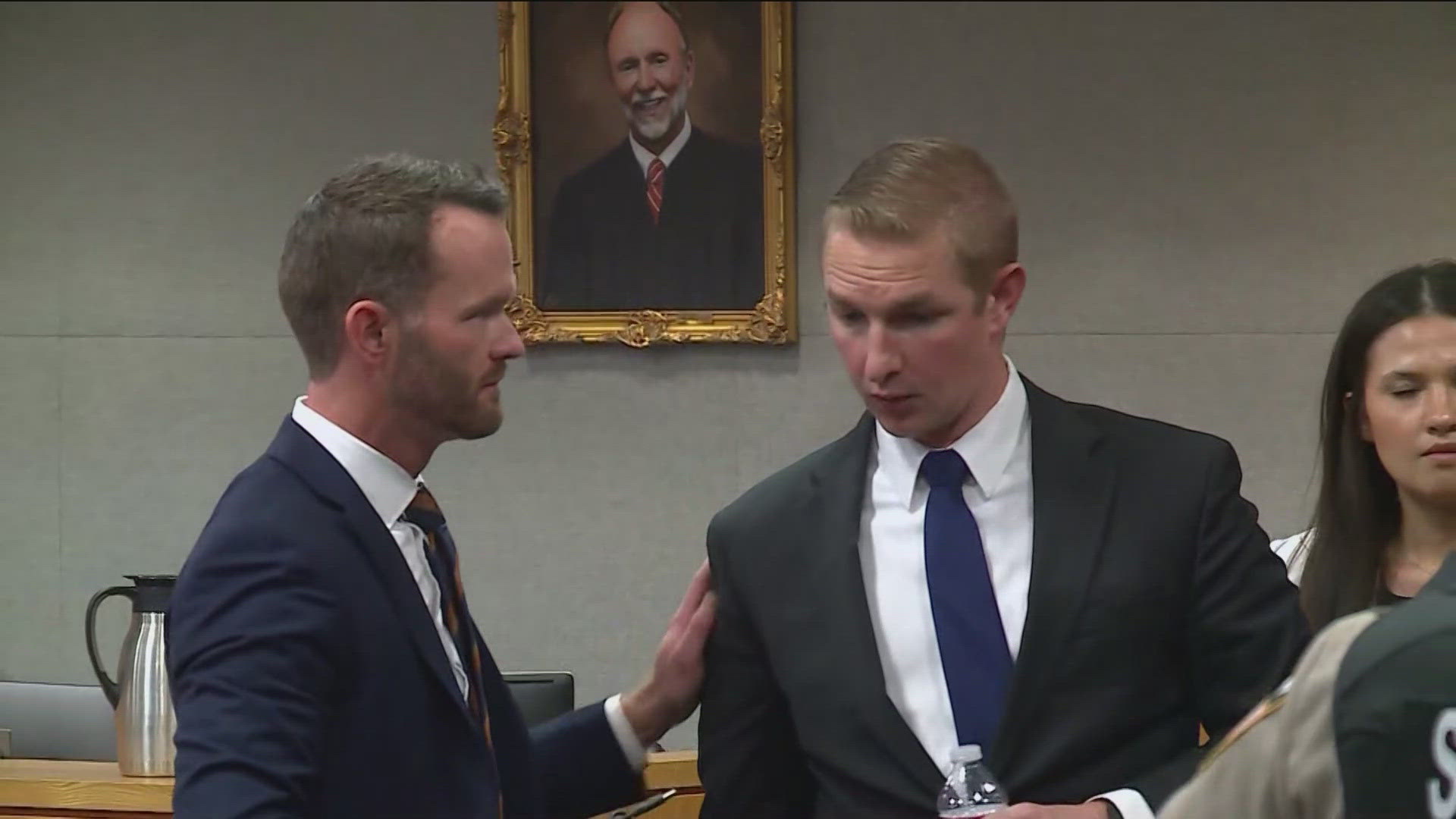AUSTIN, Texas — Both the state and the defense rested their cases in the deadly conduct trial for Austin Police Officer Christopher Taylor on Tuesday.
Taylor is on trial for the 2019 shooting death of Mauris DeSilva in Downtown Austin. Police say DeSilva was holding a knife and going through a mental health crisis when an officer confronted him.
Taylor's defense brought in their final witness, Mark Sawa, a retired officer from the Travis County Sheriff's Office and an expert on police practices. But prosecutors disagreed with Sawa's testimony that Taylor and the other officers' response in the shooting was reasonable and prudent.
Defense's questioning
When Sawa was on the stand, the defense went through the officer's body camera footage frame by frame. In just the three seconds from when the door opened to when shots were fired, Sawa testified that DeSilva went from a potential threat to an immediate threat.
Sawa said in police training, there are a lot of factors that go into how they classify certain types of threats. In this case, Sawa said the proximity of the threat to officers played a large role. DeSilva was just 3 feet away from one officer and 5 feet away from Taylor.
In the frame-by-frame footage, the video also showed DeSilva lowering the knife from where he was holding it up to his neck, to down near his waist. As that happened, DeSilva turned to face the officers and started taking steps. Sawa testified that because DeSilva didn't drop the knife when officers asked him to, and given his mental state, his threat level had elevated.
The defense also entered an audio recording of District Attorney José Garza addressing Austin ISD police about a separate situation into evidence. In the audio clip, he gave an example of a person who is 30 feet away holding a knife and unresponsive to commands; Garza said that would be a situation to use lethal force.
"That is a context that is seconds away from being a situation where you are authorized to use deadly force, right? A step toward you, a step towards another person, and you are very likely in a place where you're authorized to use deadly force," Garza said on the audio recording entered into evidence.
State's questioning
The state questioned Sawa about DeSilva being an immediate threat. Prosecutors questioned him about whether or not DeSilva was actively trying to commit murder when officers saw him.
Sawa testified that with the knowledge about DeSilva's mental state and the fact that he was in a public area with a weapon, they could conclude that he would be an immediate threat who was capable of causing serious bodily injury or death.
State attorney rebutted, saying anyone is capable of causing serious bodily injury or death, but this is about whether DeSilva intended to use the knife in a manner that would cause serious bodily injury in death.
"You are inferring that all of this information means that Mr. DeSilva was a danger to other people, just the way he was a danger to himself, when in fact that's a leap. That is an inferential leap, and it's probably the same one those officers made. Would you agree with that?" state prosecutor Rob Drummond asked.
Sawa replied, "No, I would not."
Sawa concluded that, again, considering the mental state DeSilva was in, the blank stare he gave officers, how he didn't respond to commands and the steps he took toward them in the elevator only 3 to 5 feet away, officers had to handle the immediate threat at hand.
The prosecution also took a large chunk of time asking Sawa about whether officers taking the elevator to get to DeSilva was the right decision instead of taking the stairs. The state concluded that taking the stairs would have given officers more time and space between them and DeSilva.
Sawa testified that taking the elevator was the best course of action, again considering the immediacy of the situation and that DeSilva was holding a weapon in a public area of the condo where many residents could have been.
On Wednesday, Judge Dayna Blazey read the charge to the jurors, then each side had 45 minutes to make their closing arguments. Jury deliberations began right after that.
No verdict was reached after deliberations on Wednesday, Thursday and Friday. The jury is expected to return to deliberations again at 9 a.m. on Saturday.

